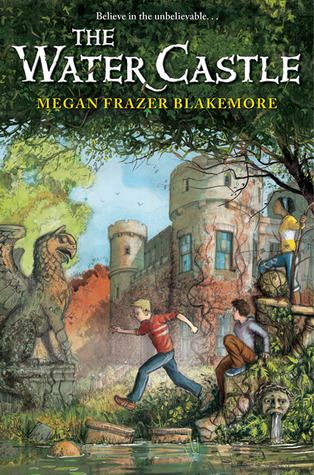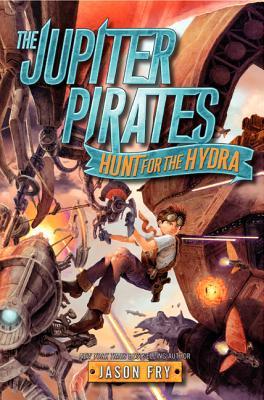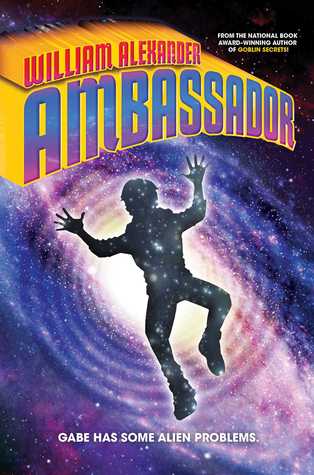A Tuesday Ten: A Science Fiction Pathway V (9-12 years old)
Posted by Stephanie Whelan
For those reading along, this is the 5th part of this pathway, the introductory paragraph is pretty much the same for each of these entries.
So, there are always lists out there detailing these or those must-read Science fiction books. Often SF and Fantasy are thrown in together without differentiation. It’s inspired me to try a different kind of series of Tuesday Ten lists, one that takes readers on a trip from childhood to adult with Science Fiction stories recommended in each age bracket. A potential pathway so to speak. I’m going to limit each bracket to ten titles (which is a REAL challenge in some cases), and I’m going to try and put in a range of works, recent and past, that are still available for readers to find. After all, the point of this list is to give you ideas of titles share with your kids or read yourselves! There will be many more options in each age range, this is only the jumping off point after all! Let’s blast off!
This week’s Ten is focusing on the next group in my age bracket, the 9-12 year-olds. (You can check out the 0-3 years list here , the 3-5 year-olds here, the 5-7 year-olds here, and the 7-9 year-olds here.) By now kids are pretty much independent readers. If they don’t already have some interest in science fiction, it can be a challenge to get them to try the genre, though not impossible by any stretch. They are having regular school assignments in book reading, both fiction and nonfiction. Some will be slower readers, still intimidated by page size or story complexity. Some will be reading their way through YA and adult literature with no signs of slowing. This is a great time though to discuss both classics and newer stories that have issues and adventures that can be chewed over and explored at length. It’s still a great idea to be reading aloud to your child at this point, though the books you choose may be from the YA and teen realm, or older classics the kids won’t pick up on their own.
Aliens, dystopias, future worlds, space adventure, invention, time travel . . . there’s a whole world of possibilities here.
1.

The Water Castle by Megan Frazer Blakemore (Walker Childrens, 2013)
We’ll kick off with this book–a notable read from 2013 that combines mystery, history, and science fiction in a subtle and delightful way. Ephraim’s ancestor was once fascinated by the idea of the fountain of youth, but he thought he might be able to create such a thing rather than simply discover it. Ephraim is on a hunt to find out what his ancestor did discover, along with new friends from the town. The science fiction in this one slips in and out, important to the plot but not overpowering, and not the traditional “sci fi” sort of setting. It’s a perfect blend to bring in any reader who likes a good story and enjoys speculating on the truth of the matter. Readers who enjoy this will probably like exploring stories of invention and near-future discoveries that still take place in a mostly recognizable setting and society. This kind of story often leads to further discussion of science ethics and the responsibilities one has for their discoveries.
2.

The Giver by Lois Lowry (Dell Laurel-Leaf, c1993)
If there ever was a book that defined dystopia, it is this masterpiece by Lowry. Complicated, controversial and creepy because it’s actually believable. Jonas is growing up in a society that is a seeming utopia, without hunger, war or conflict. But the longer readers are in this society, the more the utopia begins to look like a nightmarish dystopia. As Jonas discovers the truth about his world and the reader does too, he’ll have profound choices to make. Not an easy book, and it may not suit every child in this age range. It raises many questions–as a good science fiction story should. While the Hunger Games is the dramatic and chilling dystopian vision in everyone’s mind, this one is more subtle, but no less frightening in the end.
3.

The Time Machine by H.G. Wells (Signet Classics, c1895)
It’s certainly a time to try kids on the classics of the SF world. H.G. Wells is among the early writers of science fiction, and his unforgettable Time Machine remains in print to this day. This may be a book to read aloud to your child unless they’re particularly precocious or enthusiastic about exploring the traditions of science fiction. Time travel to the past is a pretty common thread in stories, both fantasy and SF. But time-travel to the future tends to be less common. Here our intrepid inventor and explorer does both.
4.

Mars Evacuees by Sophia MacDougall (HarperCollins, 2015)
If you like space adventure, humor, and aliens I’ve got to encourage you to read this delightfully fun Martian story! Alice Dare and other kids from Earth are being sent to the Mars colony to keep them safe while the adults back home continue to battle invading aliens. Only, once they arrive at their new home, the adults go missing, and our intrepid young people soon find themselves travelling across the hostile Martian terrain in search of help. With the help of an enemy alien and a giant floating robotic goldfish they just might save their worlds from destruction! Fun, funny, adventurous and fast moving. If you enjoy this, be sure to check out the second book: Space Hostages.
5.

Jupiter Pirates: Hunt for the Hydra by Jason Fry (HarperCollins, 2013)
Want to go a little further in the future? Jason Fry’s Jupiter Pirates series takes us out further into the solar system where Tycho and his family are privateers. With their ship the Shadow Comet they track down trespassing ships, and of course, potential treasure. With a marvelous sense of science fictional fun and a high adventure plot worthy of the old-time pirates, Jason Fry blends swashbuckling with sci-fi! This series is rich in detail and plotting, so best for the reader who is looking for longer, more sophisticated reads. There are currently three books out in this series.
6.

Space Dumplins by Craig Thompson (GRAPHIX, 2015)
Space Opera is great stuff, though there isn’t ever a great deal of it for the middle grade crowd. This new graphic novel adventure takes us to an outer space future populated by sentient chickens, giant space whales and all sorts of aliens. Our young heroine’s dad has gone missing after his day at work and rather than simply wait to find out what’s become of him, she heads out with a group of misfits, steals a ship and goes in search of him. Great fun in a full color illustrations!
7.

Ambassador by William Alexander (Margaret K. McElderry, 2014)
Ambassador is only half the story, and I do suggest anyone reading this first book have Nomad (2015) near to hand to complete this science fiction adventure. Why do I have it on the list? Several reasons. One is that it is one of the rare science fiction stories to actually feature a Latino protagonist. Two is that it’s a book that takes a different interpretation of the how intergalactic species communicate and cooperate with each other, rather than the traditional rocket ships central planet alliances. The amazing details really come together in the second book–and I think this will appeal most to thinkers who enjoy being challenged by new concepts and new perceptions of things.
8.

The Ear, The Eye and the Arm by Nancy Farmer (Puffin, 1995)
Futuristic earth-bound science fiction set in Africa? When it comes to middle grade books, this is the singular one that comes to mind, a story that ties science fictional and folkloric aspects together in a story about children who’ve disappeared and the legendary individuals out to find them. This was a Newbery Honor for 1995, so it can usually be found in library collections despite being printed in the 1990s.
9.

The White Mountains by John Christopher (Simon Pulse, c1967)
Next to books like the Time Machine, this series by John Christopher may be the most reprinted science fiction series for kids. The Tripods trilogy (plus a prequel) is a story of alien invasion and oppression, human escape and resistance, and ultimate victory against the vicious Tripods. Still as vivid today as it was so many years ago. It’s a critical work in the history of children’s science fiction and deserves to remain in the canon of suggested reading for years to come.
10.

Fuzzy Mud by Louis Sachar (Delacorte Books, 2015)
It was hard limiting this to ten, there are so many divergent paths of SF at this point, and so many good books I want to recommend. But I decided on Fuzzy Mud because it shows off the thriller/horror side of science fiction. What happens when an experiment gets out of control, leading to dire and deadly circumstances? What if a mysterious “fuzzy mud” in the woods by a chemical plant turned out to be a mutated experiment that begins to infect everyone who comes in contact with it? The scary consequences of science gone wrong or out of control can be seen in everything from Shelley’s Frankenstein to stories like this one from 2015. Great for conversation starters, or just for entertainment!
My earlier pathways can be found here:
A Science Fiction Pathway Part I ( 0-3 years)
A Science Fiction Pathway Part II (3-5 years)
A Science Fiction Pathway Part III (5-7 years)
A Science Fiction Pathway Part IV (7-9 years)
About Stephanie Whelan
I'm a children's librarian with a life-long love of all things science fiction and fantasy.Posted on March 31, 2016, in General Posts, Lists and tagged Aliens, Authors, Books, Children's Books, Children's Literature, Diversity, Genres, Horror, Invention, kidlit, Lists, literature, MG Books, Middle-Grade Fiction, Multicultural, Reading, reviews, Science Fiction, series, SF, Space Adventure. Bookmark the permalink. 4 Comments.
Thanks so much for another great list!
Pingback: A Tuesday Ten: Science Fiction Pathway VI (12-15 year olds) | Views From the Tesseract
Pingback: A Science Fiction Pathway VII (15-18) | Views From the Tesseract
Pingback: A Tuesday Ten (er . . . Twenty) A Science Fiction Pathway VIII (18 and up!) | Views From the Tesseract